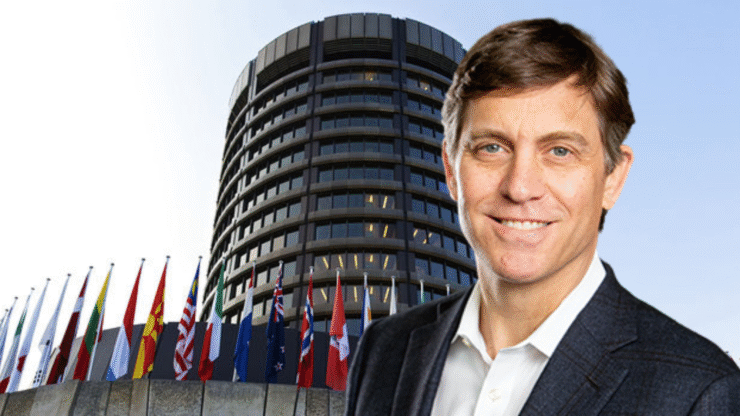CoinFund President Christopher Perkins has issued a scathing critique of the Bank for International Settlements’ (BIS) latest stance on cryptocurrency, warning that the organization’s attempt to isolate crypto from the traditional financial system could have destabilizing consequences.
In a strongly worded post on X dated April 19, Perkins called the BIS’s recommendations “uninformed and, frankly, dangerous,” suggesting they stem from “a mix of fear, arrogance, or ignorance.” His comments were in response to the BIS’s April 15 report, titled Cryptocurrencies and Decentralized Finance: Functions and Financial Stability Implications, which advocates for a containment strategy to limit the influence of decentralized finance (DeFi) and stablecoins on mainstream markets.
Perkins argued that the BIS is failing to grasp the role crypto plays in expanding access, enabling financial transparency, and offering liquidity solutions in a 24/7 global economy. He warned that isolating crypto could leave the traditional financial system increasingly vulnerable to shocks it is ill-equipped to handle—particularly in a digital age that demands interoperability and innovation.
His remarks add to a growing chorus of voices across the industry calling for more informed and forward-thinking regulatory approaches, rather than blanket suppression of emerging financial technologies.
BIS Crypto Plan Could Trigger Liquidity Crisis
Perkins argued that walling off crypto from traditional markets would dramatically increase liquidity risk for banks and financial institutions. With digital assets trading around the clock globally, while traditional financial systems shut down after hours and on weekends, he warned that any artificial barrier could leave legacy markets dangerously exposed.
“If implemented they will cause—not mitigate—the systemic risk they seek to prevent,” Perkins said.
The BIS report, which labeled DeFi and crypto as growing threats to financial stability, also noted that investor participation and capital inflows into digital assets have reached what it calls “critical mass,” pressing the need for tighter investor protection standards.
But Perkins and other industry leaders argue that isolating the technology instead of integrating it may not only stifle innovation—it could destabilize the very system regulators are trying to protect.
DeFi Isn’t the Problem—It’s the Upgrade
In response to the BIS’s concerns over the anonymity of DeFi developers, Perkins dismissed the criticism as misplaced.
“When was the last time a TradFi firm published a list of its developers?” he asked, pointing out that while public companies offer some transparency, many are increasingly replaced by less-transparent private market players. The implication: DeFi’s transparency and code-based governance may, in fact, offer stronger protections than many legacy financial institutions.
The BIS also warned that widespread use of stablecoins could cause macroeconomic disruption in countries like Venezuela and Zimbabwe—nations where weak local currencies make dollar-denominated stablecoins especially appealing. Perkins pushed back on that claim, suggesting that if USD stablecoins offer individuals in struggling economies greater financial access and protection from inflation, “perhaps that is a good thing.”
Joining Perkins in critiquing the BIS report was Christian Catalini, co-founder of Lightspark, who took to X to express his own frustration. Catalini likened the BIS’s policy framework to “writing parking regulations for a fleet of self-driving drones”—well-meaning but hopelessly outdated in the face of emerging financial technologies.
Together, their responses reflect a broader sentiment in the crypto space: regulators must evolve their frameworks to meet the realities of decentralized finance, rather than attempting to shoehorn it into legacy-era models.
Quick Facts
- The BIS recommends isolating crypto markets to protect financial stability.
- CoinFund’s Christopher Perkins warns this could increase systemic risks.
- Concerns over DeFi and stablecoins are central to the BIS’s report.
- Industry leaders advocate for informed, adaptive regulation over containment.





